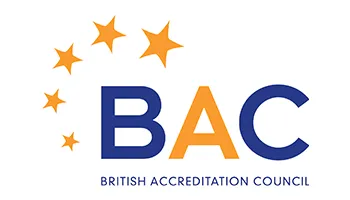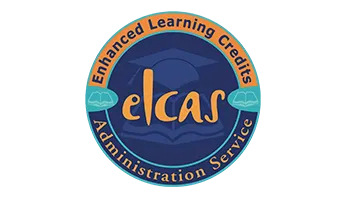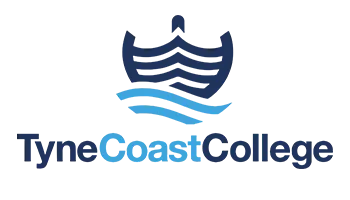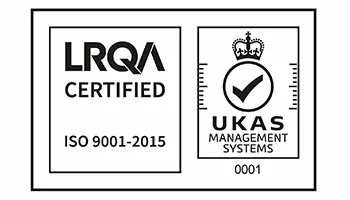
Benefits of Diploma in education and training in the UK
Published on February 14, 2024 04:31
- Overview
- Diploma in Education and Training (DET)
- Who can Enrol to DET
- Exploring the Benefits
- Definition and Significance of QTLS
- Requirements and Eligibility Criteria
- Importance of Achieving QTLS Status for Career Advancement
- Utilising the Knowledge Gained from the Diploma
- Tailoring Skills for Specific Roles
- Building a Strong Professional Network
- Seeking Additional Certifications or Specialisations
- Conclusion
Overview
Diploma in education and training is for the people who wish to build careers in teaching. It is an advanced qualification for those who are already in the teaching post - 16 sector. Training courses started back in the 1890s in the universities in the UK because of the recommendations by the Royal Commission for the working of the elementary education acts. Although the basic purpose of this qualification is to help in the thought process for learning strategies, planning lessons, and enhancing teaching skills, there are countless more benefits. After completing the diploma in education and training in the UK, you can work as an educational mental health practitioner, learning mentor, educational psychologist, laboratory teaching technician, school librarian, supply teacher and education welfare officer. In this article, you will discuss how this diploma can lead you to secure a position in any of the above fields and how you can achieve QTLS status.
Diploma in Education and Training (DET)
Diploma in education and training comes under Qualifications and Credit Framework (QCF). QCF awards credits to qualifications and units, enabling learners to progress at their own pace. Diploma in education and training is at level 5 among the professional courses. The diploma helps in learning the latest teaching strategies and educational practices. This diploma has an in-service qualification which provides the initial training for teaching.
Who can Enrol to DET
Enrolment in this course requires students to demonstrate 100 hours of teaching practice, encompassing 8 hours of observed teaching sessions. The documented evidence must be logged and approved by the respective line manager. Participants must be aged 19 or over to enrol in this programme.
Educational Mental Health Practitioner
Starting a career as an Educational Mental Health Practitioner involves a commitment to promoting students' psychological well-being within an educational context. This role requires individuals to provide targeted mental health support, contributing to a positive learning environment. The Diploma in Education and Training not only equips aspiring practitioners with the necessary theoretical knowledge but also instils practical skills crucial for addressing the unique challenges faced by students in their mental health journey.
Learning Mentor
In the realm of education, Learning Mentors play a crucial role in guiding students towards academic success and personal development. With the help of the skills learned from the Diploma in Education and Training , individuals can easily transition into this mentoring role. Learning Mentors provide tailored guidance, fostering a supportive atmosphere conducive to educational growth.
Educational Psychologist
Educational Psychologists contribute significantly to the enhancement of learning environments by understanding and addressing the psychological aspects of education. Educational Psychologists have multifaceted responsibilities, and the Diploma in Education and Training serves as a foundation for comprehending the intersection between psychology and effective teaching. It also underscores the potential positive impact that these professionals can have on students' overall educational experiences.
Laboratory Teaching Technician
The role of a Laboratory Teaching Technician is crucial in facilitating hands-on, practical learning experiences within educational institutions. Diploma in Education and Training prepares individuals for this technical and support-oriented role. By being involved in the practical aspects of education, laboratory teaching technicians contribute to a holistic learning experience.
School Librarian
School Librarians are key figures in fostering a love for literature and information literacy among students. Expanding beyond the traditional role, modern School Librarians contribute to creating dynamic learning spaces. This paragraph explores the evolving responsibilities of School Librarians and how the Diploma in Education and Training aligns with the information management aspects of this role. It also emphasises the role of School Librarians in promoting a culture of reading within educational institutions.
Supply Teacher
Supply Teachers, known for their adaptability and flexibility, teach in a diverse range of classrooms to ensure continuity in education. Diploma in Education and Training prepares individuals for the challenges of varied educational settings. Whether covering short-term absences or providing specialised expertise, supply teaching emerges as a rewarding career path for those completing the diploma.
Education Welfare Officer
Education Welfare Officers play a very important role in ensuring students' attendance and overall well-being. Education Welfare Officers contribute to creating a nurturing environment, addressing attendance issues, and supporting students facing challenges. Success stories within this field underscore the positive impact these officers can have on students' educational journeys.
Exploring the Benefits
Skill Development and Enhancement:
Engaging in the Diploma in Education and Training offers a comprehensive platform for skill development and refinement. Through a carefully structured curriculum, participants not only acquire theoretical knowledge but also engage in practical applications of teaching methodologies. The emphasis on pedagogical techniques, classroom management, and effective communication equips individuals with a diverse skill set. This skill development not only enhances their teaching abilities but also fosters adaptability in addressing the dynamic challenges within educational settings.
Broadening Career Prospects:
One of the notable advantages of completing the Diploma in Education and Training is the significant expansion of career prospects. Beyond the traditional path of teaching, the diploma opens doors to diverse roles such as educational mental health practitioner, learning mentor, or laboratory teaching technician. The acquired skills and knowledge provide a versatile foundation, enabling individuals to explore various avenues within the educational sector. This broadening of career options enhances professional flexibility and increases the likelihood of finding a role that aligns with one's interests and aspirations.
Contributing to the Educational System:
Completing the diploma is not just a personal achievement but also a contribution to the broader educational system. Individuals armed with the skills and insights gained from the programme become valuable assets to educational institutions. By implementing effective teaching strategies and actively participating in educational initiatives, diploma holders contribute to creating positive learning environments. Their impact extends beyond the classroom, influencing the overall quality of education and fostering a culture of continuous improvement within the educational system.
Personal and Professional Growth:
The Diploma in Education and Training serves as a catalyst for both personal and professional growth. On a personal level, the journey through the programme enhances self-confidence, communication skills, and the ability to adapt to diverse learning environments. Professionally, the diploma not only opens avenues for career advancement but also positions individuals as leaders in educational settings. The continuous pursuit of knowledge and the commitment to excellence foster a sense of fulfilment, contributing to holistic personal and professional development.
Definition and Significance of QTLS
Qualified Teacher Learning and Skills (QTLS) status is a prestigious designation that signifies a professional's expertise and competence in the realm of teaching within the learning and skills sector. Recognised by reputable education authorities, achieving QTLS is a testament to an individual's commitment to high standards of teaching and continuous professional development. This designation elevates educators, acknowledging their proficiency in delivering quality learning experiences and contributing significantly to the enhancement of education within the post-16 sector.
Requirements and Eligibility Criteria
Attaining QTLS status involves meeting specific requirements and eligibility criteria. Aspiring candidates typically need to hold a recognised teaching qualification, such as the Diploma in Education and Training . They must demonstrate a specified amount of teaching experience, showcasing their competence in delivering effective education. Additionally, candidates undergo a professional formation process, which may include reflective practice and evidence of continued professional development. Meeting these criteria ensures that individuals seeking QTLS have not only the requisite qualifications but also a track record of excellence in their teaching careers.
Importance of Achieving QTLS Status for Career Advancement
Achieving QTLS status holds paramount importance for career advancement within the teaching profession. This accreditation not only enhances one's professional standing but also opens doors to a wider array of career opportunities. Many educational institutions and employers specifically seek professionals with QTLS status, considering it a benchmark for excellence in teaching. Beyond the immediate recognition, QTLS provides a pathway for continuous career development, offering individuals the chance to take on leadership roles, contribute to educational policy, and become influential figures within the educational landscape. Ultimately, QTLS serves as an asset for educators aiming for sustained and impactful careers in the post-16 teaching sector.
Utilising the Knowledge Gained from the Diploma
Effectively leveraging the knowledge acquired through the Diploma in Education and Training is paramount for securing a position in various fields. Applying the pedagogical insights, teaching strategies, and classroom management skills learned during the programme positions individuals as competent educators. By translating theoretical foundations into practical applications, diploma holders demonstrate their readiness to contribute meaningfully to diverse educational roles, making them attractive candidates for positions beyond traditional teaching.
Tailoring Skills for Specific Roles
Securing a position in specific educational fields requires a targeted approach in tailoring acquired skills. Individuals should identify the unique requirements of roles such as educational mental health practitioner, learning mentor, or laboratory teaching technician. Adapting teaching methodologies, incorporating relevant specialisations, and aligning skills with the specific demands of the desired position enhance the candidacy. This strategic alignment ensures that individuals stand out as well-suited candidates in the competitive landscape of diverse educational careers.
Building a Strong Professional Network
Networking plays an important role in exploring the various areas of educational roles. Building a robust professional network within the education sector opens doors to opportunities, mentorship, and valuable insights. Attending industry events, joining relevant online forums, and establishing connections with professionals in diverse roles contribute to a comprehensive understanding of career pathways. A strong professional network not only provides guidance but also serves as a resource for discovering potential job openings and gaining firsthand knowledge about specific educational fields.
Seeking Additional Certifications or Specialisations
To enhance marketability and competence in specific fields, individuals should consider seeking additional certifications or specialisations. Whether pursuing advanced qualifications in educational psychology, gaining expertise in mental health support, or obtaining technical certifications for roles like laboratory teaching technician, additional credentials supplement the foundational knowledge gained from the diploma. Get enrolled into a diploma in education and training from OLC . This commitment to continuous learning not only demonstrates dedication to professional development but also aligns individuals with the evolving requirements of specialised roles within the diverse landscape of the post-16 education sector.
Conclusion
The Diploma in Education and Training emerges as a transformative pathway, offering a multitude of benefits. As we recap the journey through this programme, it becomes evident that it not only enhances teaching capabilities but also opens doors to diverse career opportunities, ranging from educational psychology to roles as learning mentors or supply teachers. Encouraging individuals to explore these varied paths in education, the diploma proves to be a stepping stone towards personal and professional growth. Considering the ever-evolving landscape of teaching and related professions, it is essential to recognise the dynamic nature of education. Accepting change and staying abreast of developments in the field ensures that educators are well-equipped to make meaningful contributions, fostering a positive impact on the future of education. Thus, as we navigate the transformative potential of the Diploma in Education and Training, it is not merely a qualification but a key to experiencing a rich tapestry of opportunities within the dynamic realm of post-16 education.











